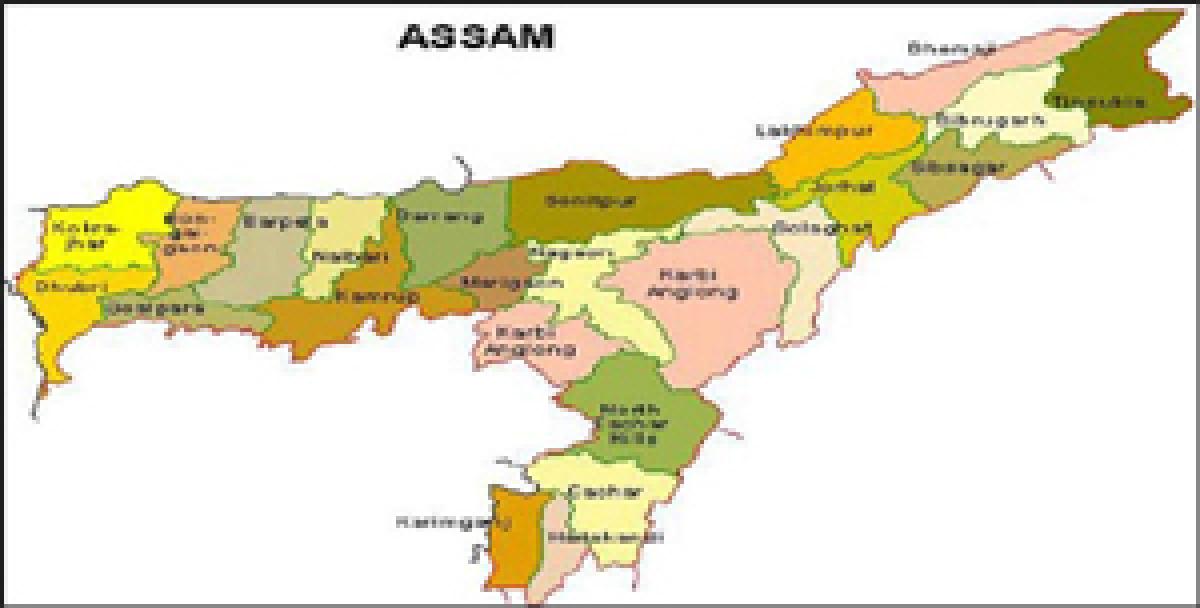Just In

30 Years Later, Assam Accord Back In Focus. As the country celebrated Independence Day on Saturday, the historic Assam Accord, signed on this very day 30 years ago to detect and deport illegal immigrants in the northeastern state, has returned into focus.
.jpg) New Delhi: As the country celebrated Independence Day on Saturday, the historic Assam Accord, signed on this very day 30 years ago to detect and deport illegal immigrants in the northeastern state, has returned into focus.
New Delhi: As the country celebrated Independence Day on Saturday, the historic Assam Accord, signed on this very day 30 years ago to detect and deport illegal immigrants in the northeastern state, has returned into focus.
Though the accord was signed to end a six-year-long mass movement demanding detection and deportation of illegal immigrants, mostly from Bangladesh, who threatened the culture, identity and economic future of the indigenous people of Assam, successive central and state governments have failed to implement key clauses of the agreement.
The accord was signed between the central and Assam governments on one side and the All Assam Students' Union (AASU) and the now defunct All Aasam Gana Sangram Parishad (AAGSP), who spearheaded the movement, on the other, in the presence of then prime minister Rajiv Gandhi.
According to the accord, all foreigners who entered Assam illegally on or after March 25, 1971, would be detected, their names deleted from the electoral rolls and then deported under the provisions of the Foreigners Act, 1946 and the Foreigners (Tribunals) Order, 1964.
Though the accord was signed on August 15, 1985, seemingly unending illegal immigration continues from Bangladesh till this day. According to official figures released way back in December 2001, there were an estimated five million foreigners in Assam.
Last year, while campaigning for the BJP ahead of the general elections, Narendra Modi promised that, if brought to power, he would ensure that all clauses of the Assam Accord were implemented and illegal immigrants in the state detected and deported.
Now, with the NDA government completing one year in office, the AASU, in a smart move, organised a national seminar themed "30 Years of Assam Accord: Issues, Challenges and Implementation" in the national capital on August 11 and 12 - just before Independence Day.
The idea was not only to highlight the non-implementation of the accord's clauses but also the security threat posed to national security by the phenomenon of illegal immigration.
So, did it pay dividends? If nothing else, hopes were raised.
Home Minister Rajnath Singh said that as an immediate step, he would visit the Bangladesh border in Assam within this month accompanied by an AASU delegation to take stock of the situation arising out of the illegal immigration.
"I know about all your genuine demands and I can assure you that only Indians will stay in India. We should know what steps should be taken to protect the rights of the indigenous people without leaving any loopholes," he said.
The home minister also said discussions would be held with AASU to find out the shortcomings in the Assam Accord that were stopping its full implementation. The home ministry is the nodal ministry for implementing the accord.
"Since I became the home minister last year, I have visited Assam as many as seven times. This is the most visits I have made to any state after my home state of Uttar Pradesh," Rajnath Singh said by way of reassurance.
Minister of State for Home Affairs Kiren Rijiju, who hails from the neighbouring state of Arunachal Pradesh, said that he would take every initiative within his ministry with the support of Rajnath Singh to bring the issue to the prime minister's notice.
Calling Assam his motherland he lamented how the matter had slipped out of hand.
"Assam is the heart of the northeast. Assam has to be protected if the northeast is to be protected."
He said all stakeholders, including the Assamese society, were responsible for the failure to implement the accord.
"All political parties should take responsibility, be it Congress, BJP or AGP (Asom Gana Parishad)," Rijiju said.
Former chief election commissioner H.S. Brahma, who also hails from Assam, said three key steps needed to be taken: someone should take ownership of the accord and ensure its implementation; a calendar should be prepared and half-yearly and yearly reviews of the work done should be made; and every year, the AASU or a think tank or civil society should present a white paper recording the progress in the accord's implementation.
According to Rijiju, AASU should take the lead in the process and cooperation should be extended from all sides.
Former home secretary G.K. Pillai, who was also joint secretary for the northeast, was of the view that work permits should be issued as this would help identify the foreigners. However, this did not meet with assent from all sides.
In 2005, 20 years after the signing of the accord, a key impediment to the implementation of its clauses was removed when the Supreme Court struck down the Illegal Migrants (Determination by Tribunal) Act, 1983. The Act had put the onus on the police to prove whether a person was a foreigner or not.
Following the national seminar, the AASU has come out with a 14-point Delhi Resolution, which, among others, calls for the signing of a repatriation treaty between India and Bangladesh, and complete sealing of the border within a declared deadline.
With the process of updating the National Register of Citizens also going on in Assam under the direct supervision of the Supreme Court - the deadline is August 31 - the historic accord seems to have somehow regained its relevance.

© 2024 Hyderabad Media House Limited/The Hans India. All rights reserved. Powered by hocalwire.com







